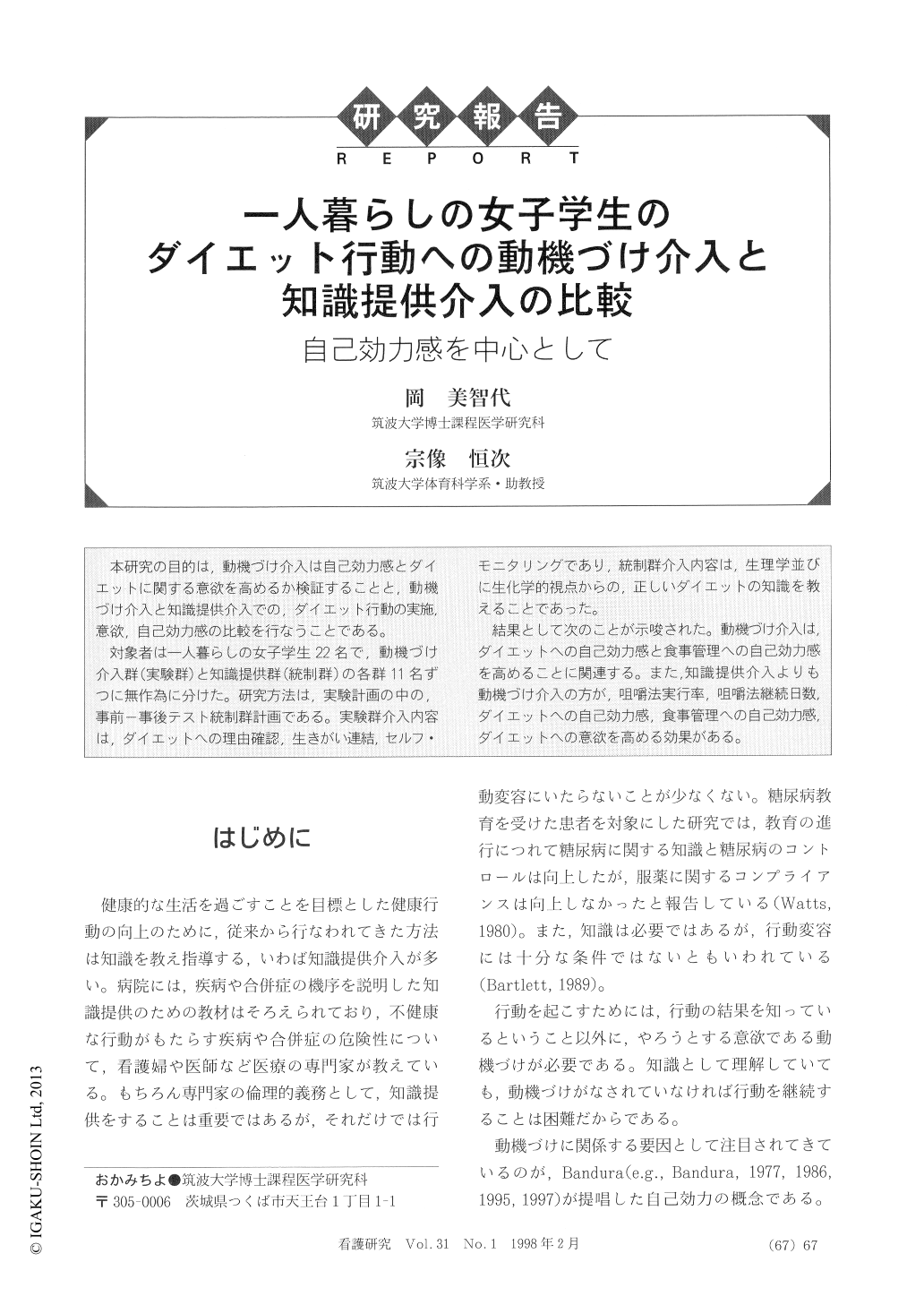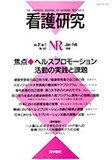Japanese
English
- 有料閲覧
- Abstract 文献概要
- 1ページ目 Look Inside
- サイト内被引用 Cited by
本研究の目的は,動機づけ介入は自己効力感とダイエットに関する意欲を高めるか検証することと,動機づけ介入と知識提供介入での,ダイエット行動の実施,意欲,自己効力感の比較を行なうことである。
対象者は一人暮らしの女子学生22名で,動機づけ介入群(実験群)と知識提供群(統制群)の各群11名ずつに無作為に分けた。研究方法は,実験計画の中の,事前一事後テスト統制群計画である。実験群介入内容は,ダイエットへの理由確認,生きがい連結,セルフ・モニタリングであり,統制群介入内容は,生理学並びに生化学的視点からの,正しいダイエットの知識を教えることであった
結果として次のことが示唆された。動機づけ介入は、ダイエットへの自己効力感と食事管理への自己効力感を高めることに関連する。また,知識提供介入よりも動機づけ介入の方が,咀嚼法実行率,咀嚼法継続日数,ダイエットへの自己効力感,食事管理への自己効力感,ダイエットへの意欲を高める効果がある。
The purpose of this study was: 1) to verify if motivational intervention enhances self-efficacy and desire for weight control; and 2) to compare the performance of weight control, desire, and self-efficacy among subjects in the motivational intervention group with those in the knowledge-supplied intervention group.
Subjects included twenty-two female students living alone.The participants were divided into two groups of motivational-intervention (experimental group) and knowledge-supplied intervention (control group), consisting of eleven subjects in each group selected at random. A pre-test/post-test control design was used. Intervention in the experimental group consisted of a confirmation of individual reasons for weight control, connecting weight control with a life worth living for, and self-monitoring. Intervention in the control group however, involved instructions on physiological and biochemical basis of proper weight control.
As the result, these are suggested that the motivational intervention associated with enhancement of self-efficacy in weight control and dietary behavior. Compared to knowledge-based intervention, motivational intervention was associated with higher chewing method performance ratios, longer terms of continuing the chewing method, self-efficacy of weight control, self-efficacy of dietary behavior, and desire to weight contral.

Copyright © 1998, Igaku-Shoin Ltd. All rights reserved.


